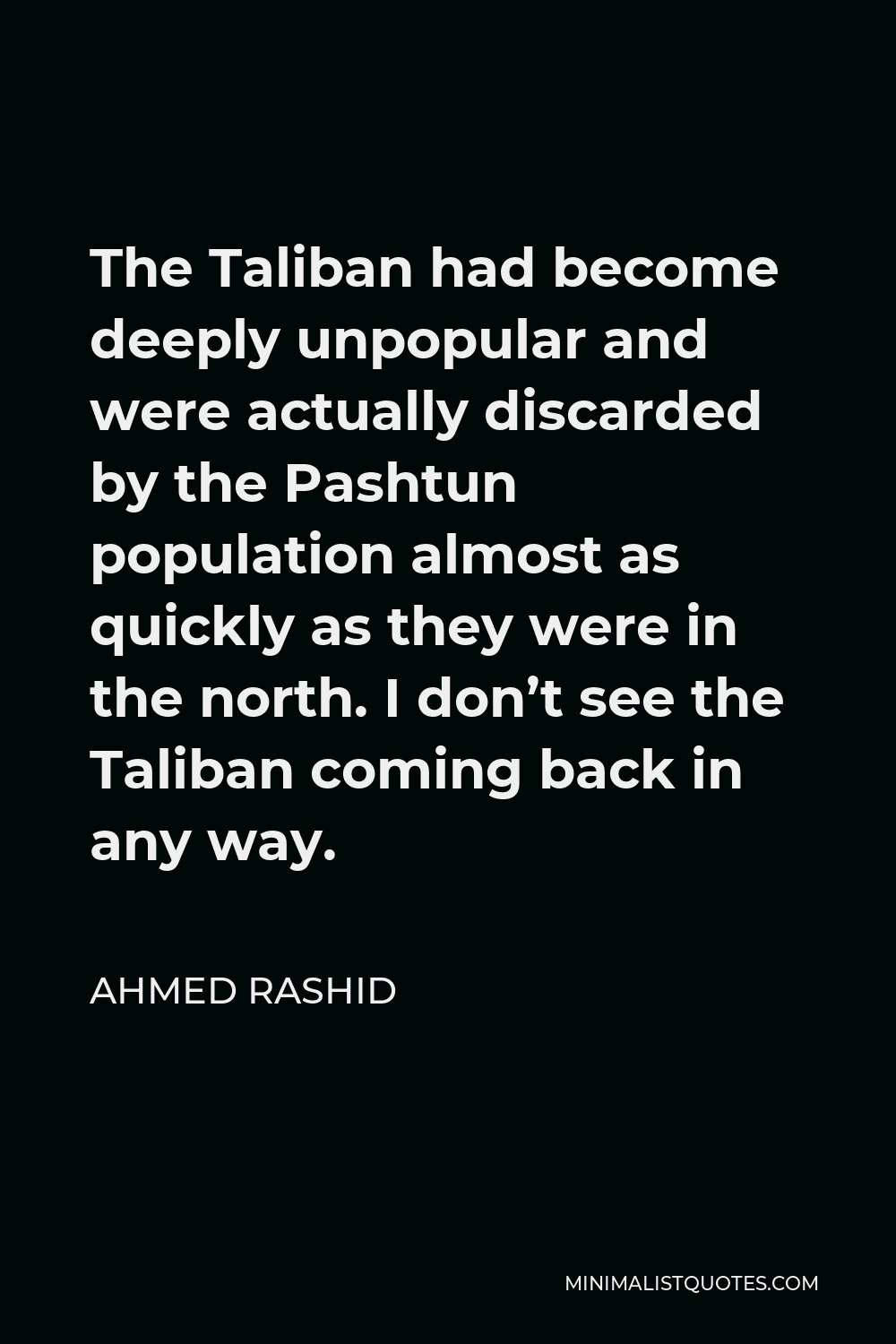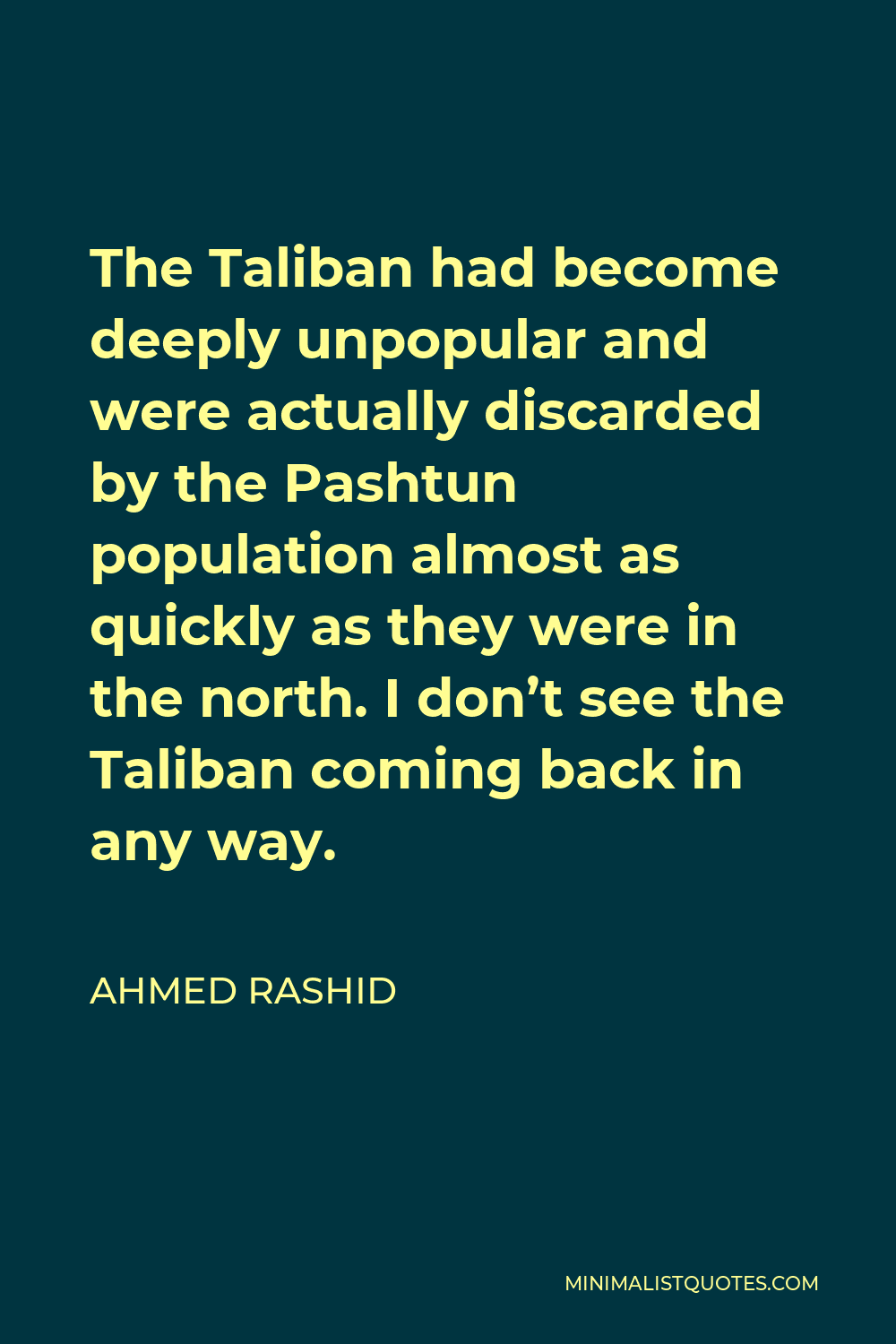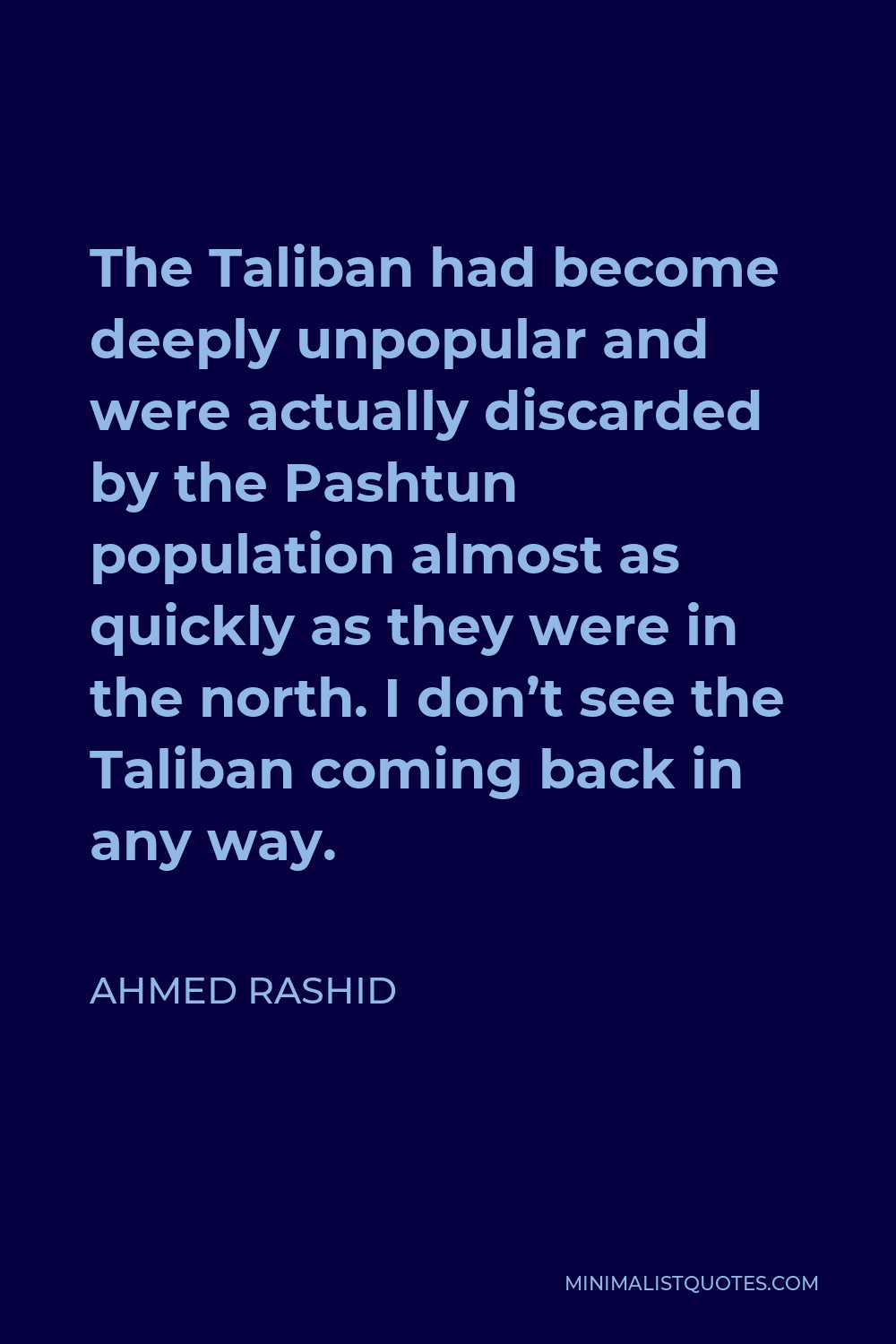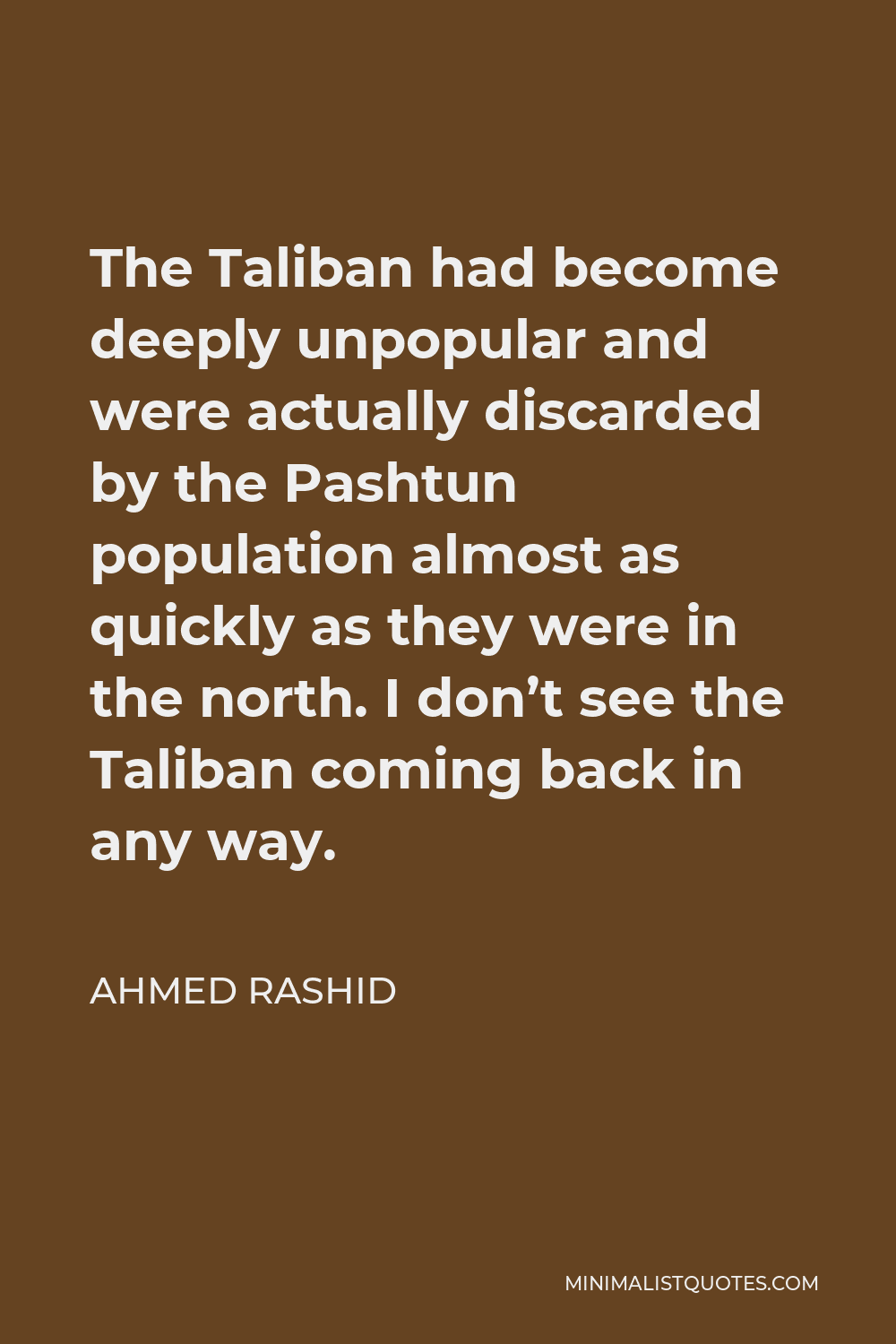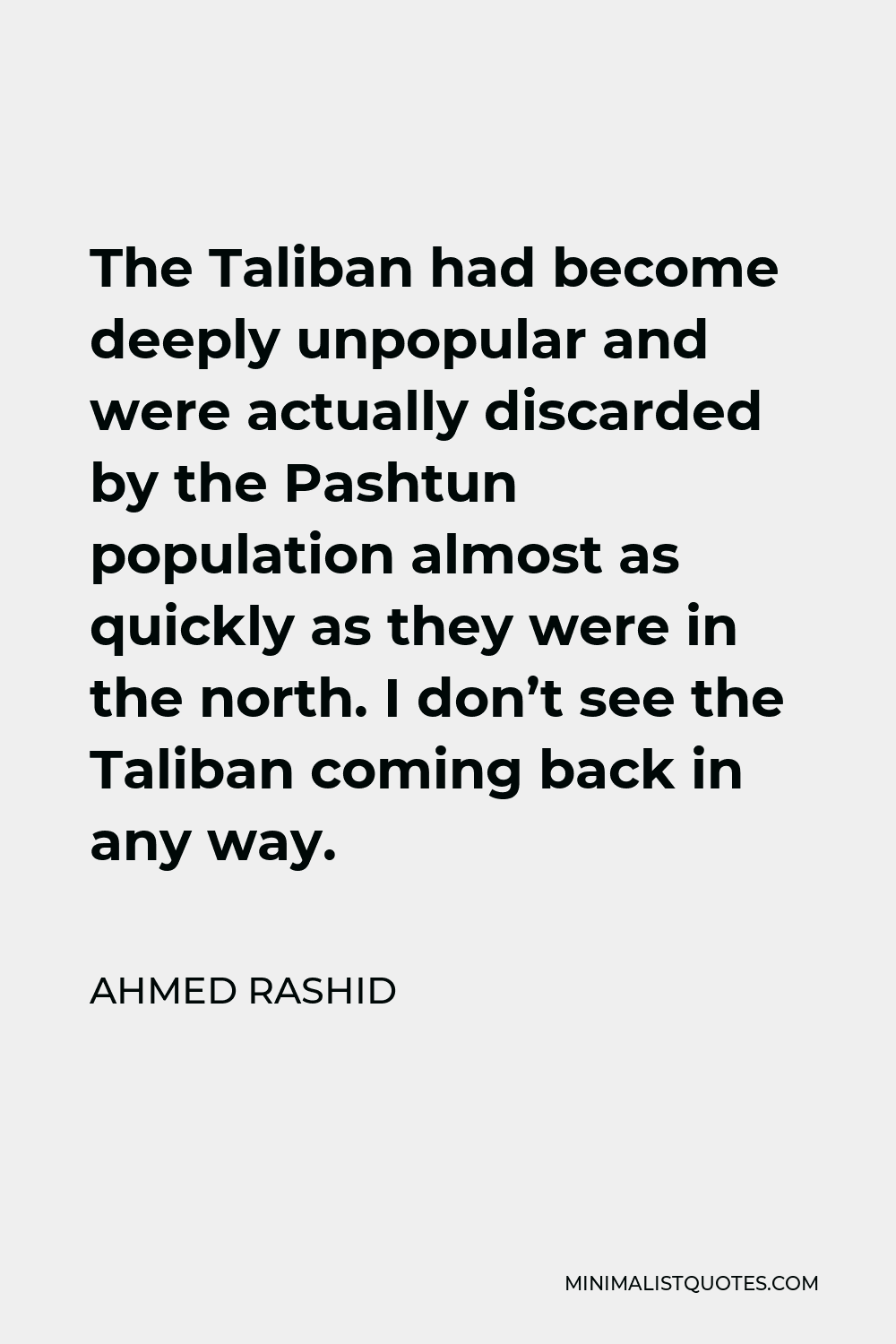Despite all the dire predictions made in 2001, the Afghans have given the international community, its aid workers and soldiers a large window of opportunity to repair the damage done by 25 years of war.
AHMED RASHIDThe Taliban had become deeply unpopular and were actually discarded by the Pashtun population almost as quickly as they were in the north. I don’t see the Taliban coming back in any way.
More Ahmed Rashid Quotes
-





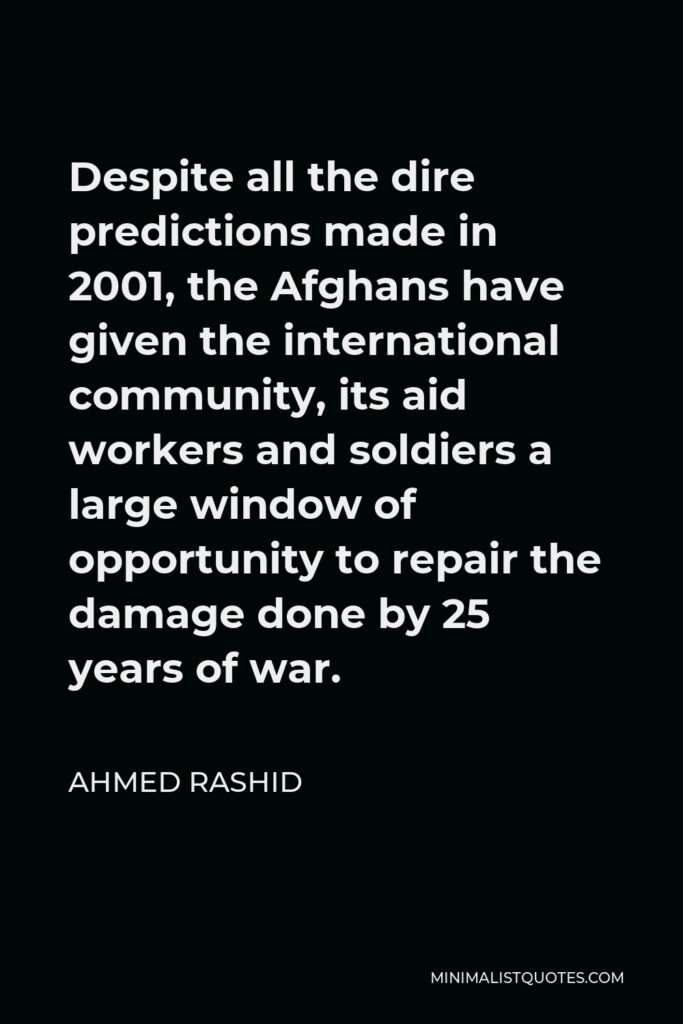

-





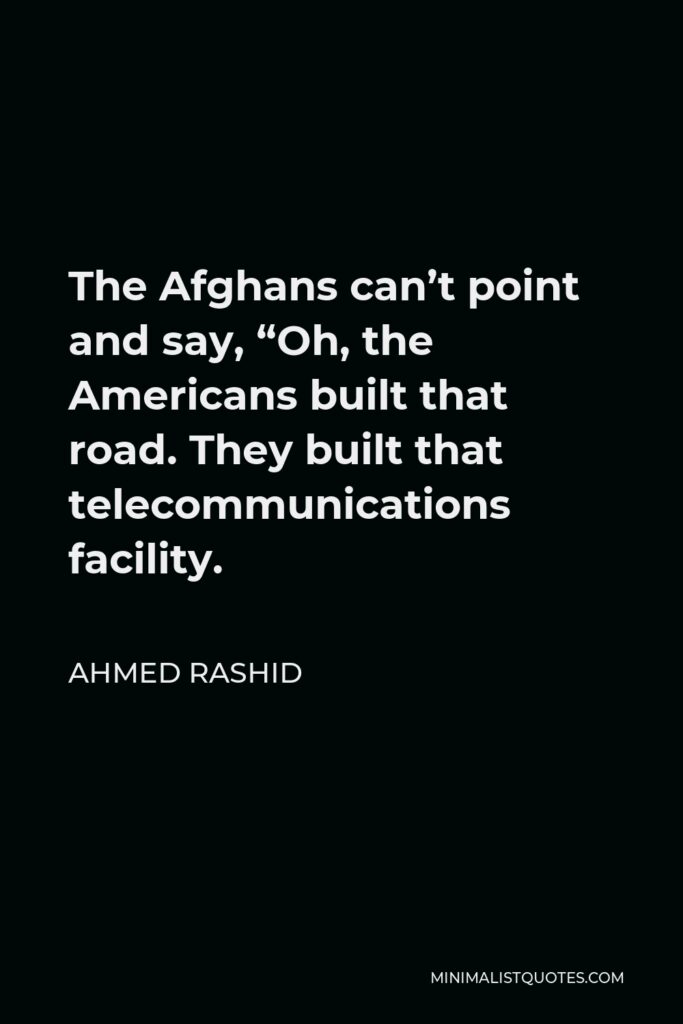

The Afghans can’t point and say, “Oh, the Americans built that road. They built that telecommunications facility.
AHMED RASHID -





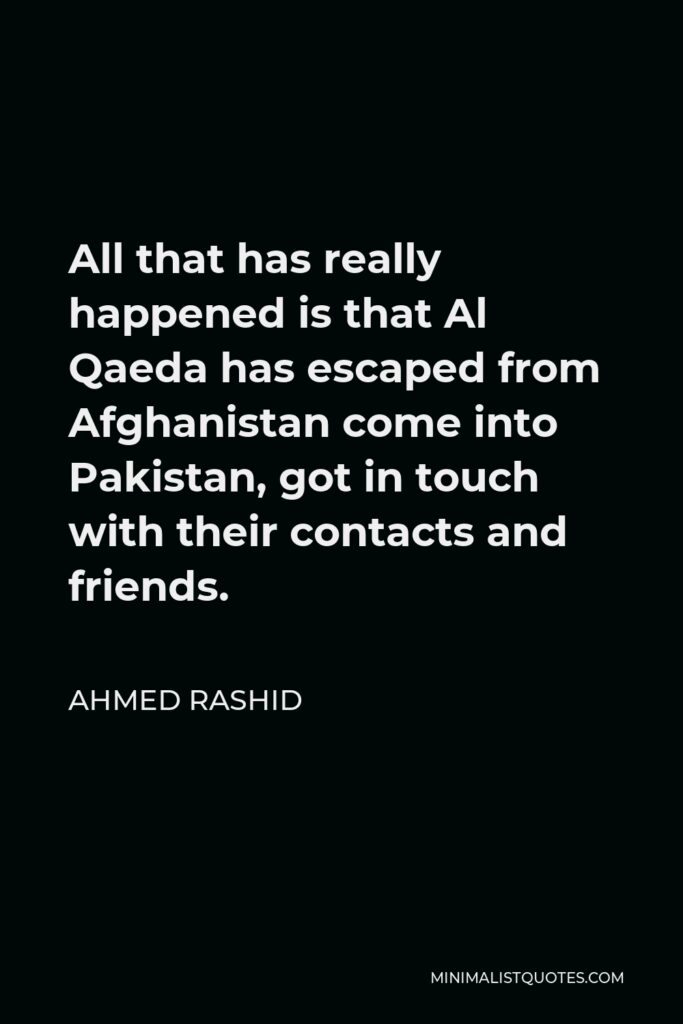

All that has really happened is that Al Qaeda has escaped from Afghanistan come into Pakistan, got in touch with their contacts and friends.
AHMED RASHID -





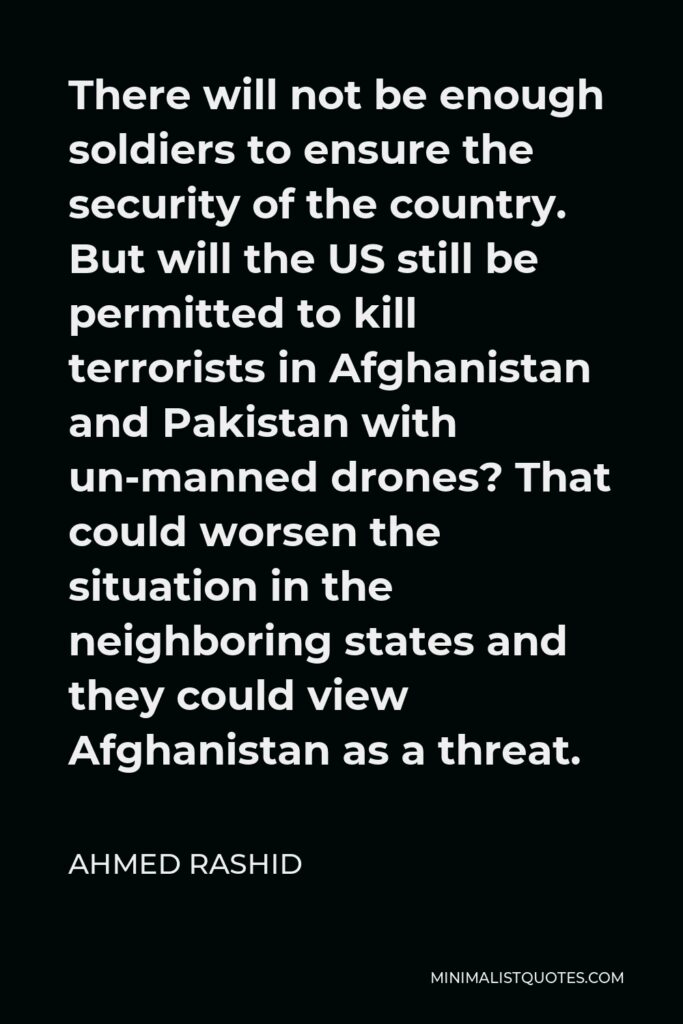

There will not be enough soldiers to ensure the security of the country. But will the US still be permitted to kill terrorists in Afghanistan and Pakistan with un-manned drones? That could worsen the situation in the neighboring states and they could view Afghanistan as a threat.
AHMED RASHID -







This year we watched the collapse of Mali, a consequence of the Libyan civil war. The south of Libya and Mali, and Niger too, are well on the way to becoming a no-man’s land. After 9/11,
AHMED RASHID -





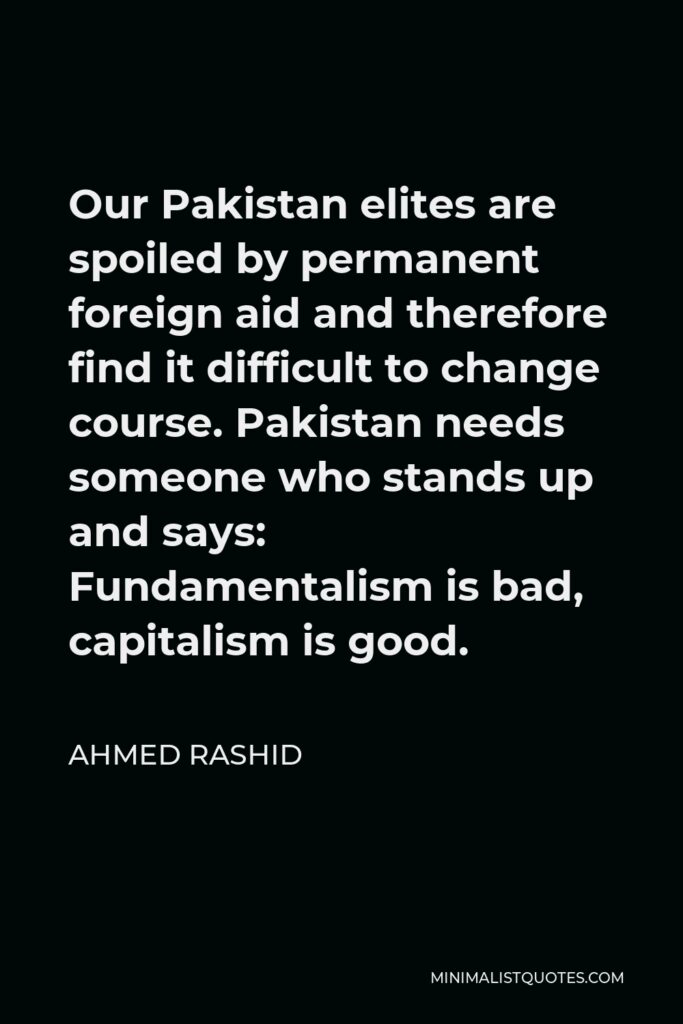

Our Pakistan elites are spoiled by permanent foreign aid and therefore find it difficult to change course. Pakistan needs someone who stands up and says: Fundamentalism is bad, capitalism is good.
AHMED RASHID -





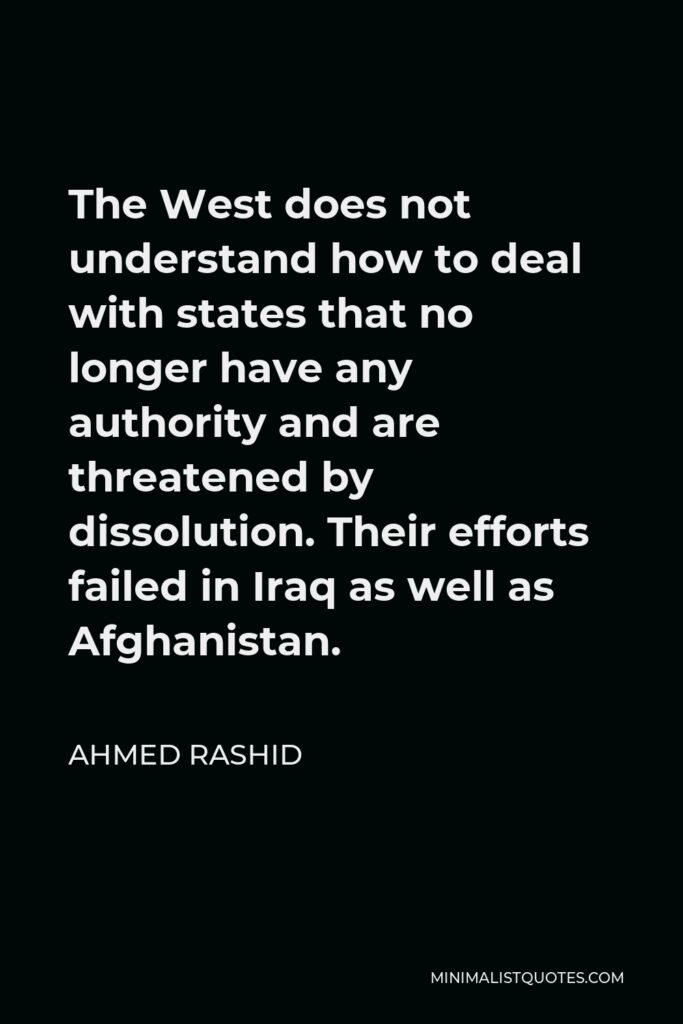

The West does not understand how to deal with states that no longer have any authority and are threatened by dissolution. Their efforts failed in Iraq as well as Afghanistan.
AHMED RASHID -





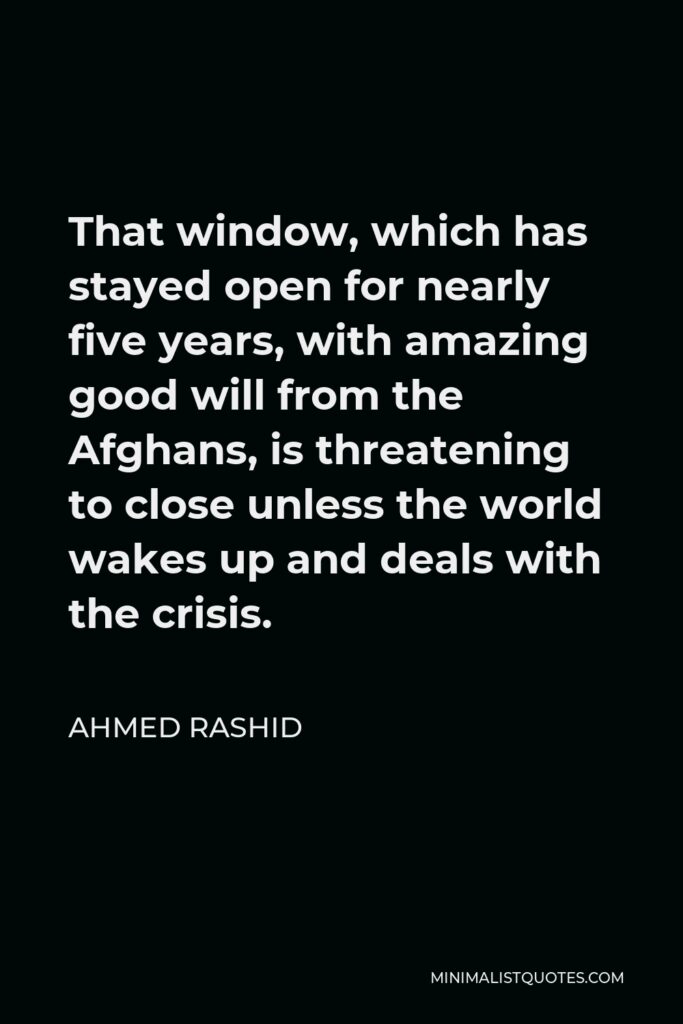

That window, which has stayed open for nearly five years, with amazing good will from the Afghans, is threatening to close unless the world wakes up and deals with the crisis.
AHMED RASHID -





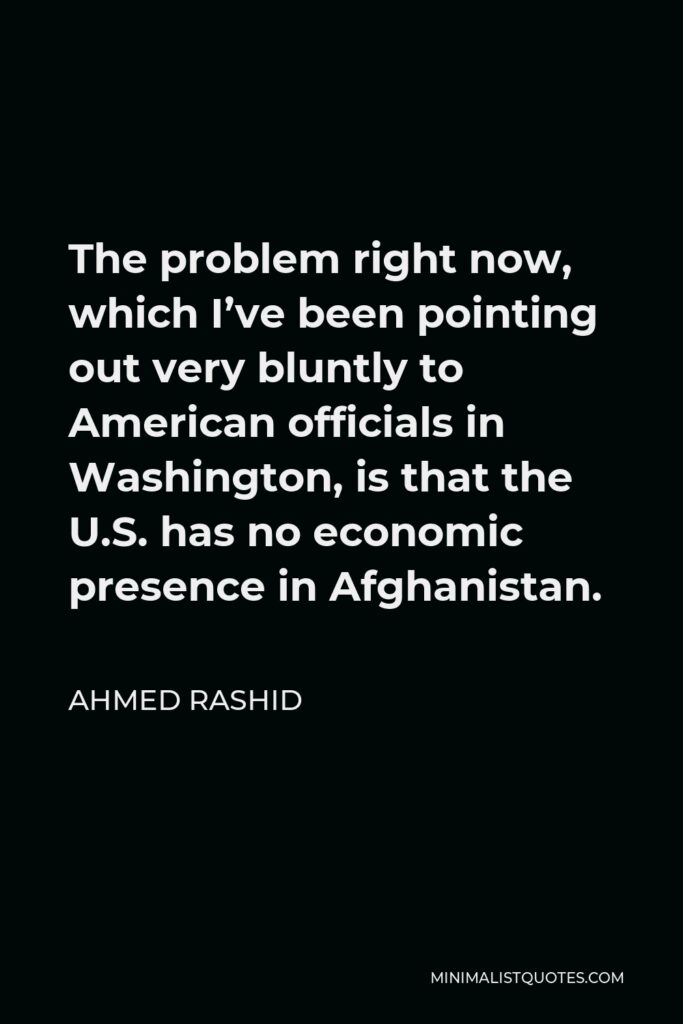

The problem right now, which I’ve been pointing out very bluntly to American officials in Washington, is that the U.S. has no economic presence in Afghanistan.
AHMED RASHID -





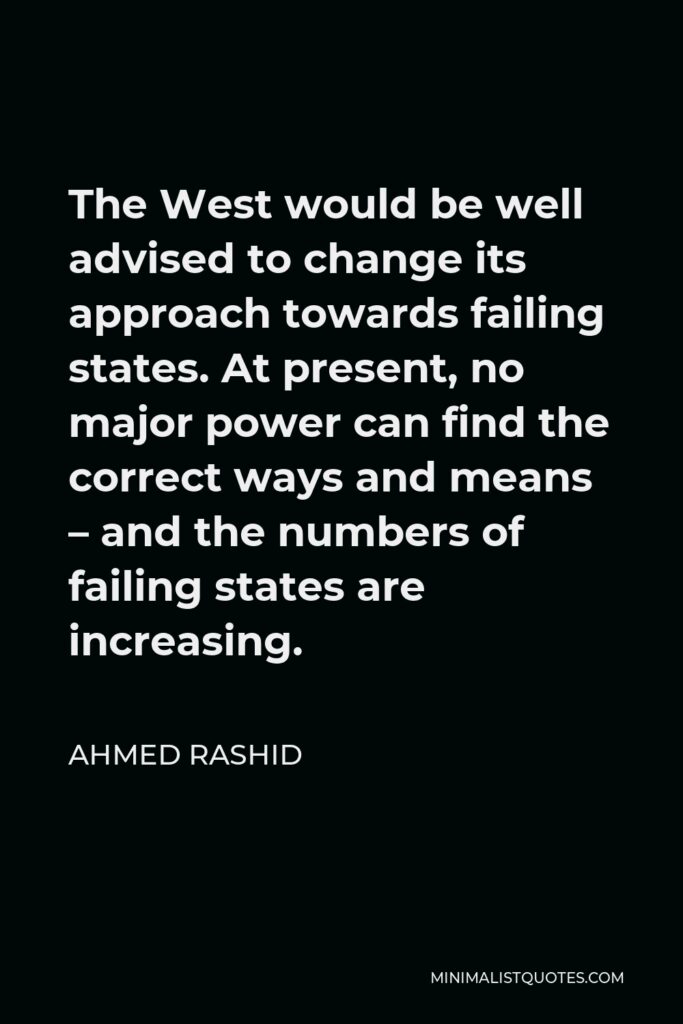

The West would be well advised to change its approach towards failing states. At present, no major power can find the correct ways and means – and the numbers of failing states are increasing.
AHMED RASHID -







George W. Bush and Tony Blair made the promise that they would not tolerate failed states because they could become a haven for terrorists. And today? The number increases.
AHMED RASHID -





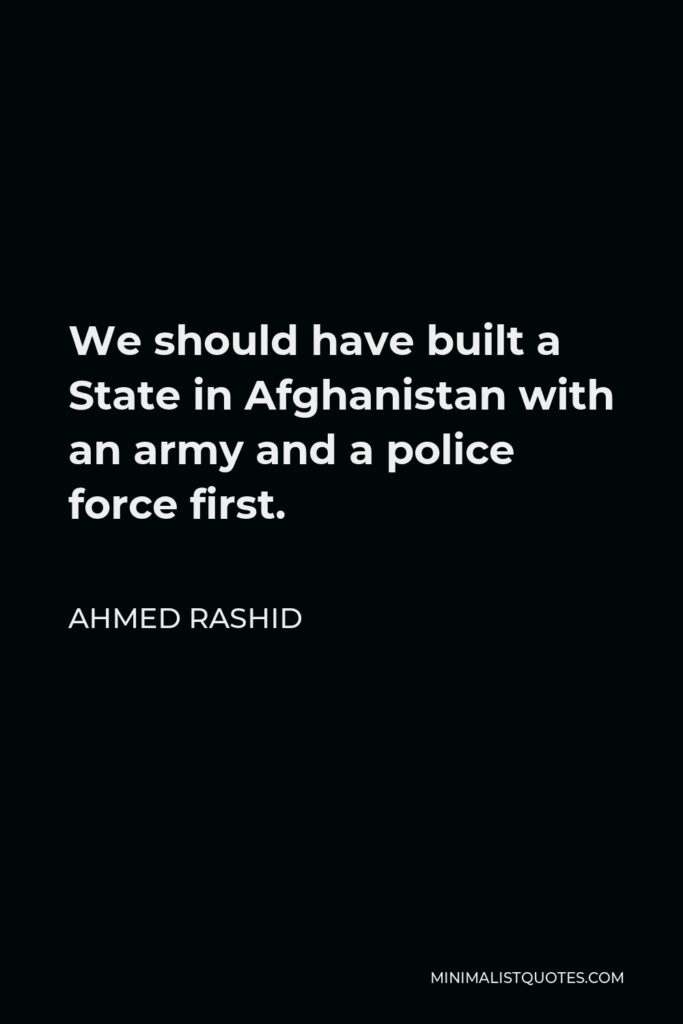

We should have built a State in Afghanistan with an army and a police force first.
AHMED RASHID -





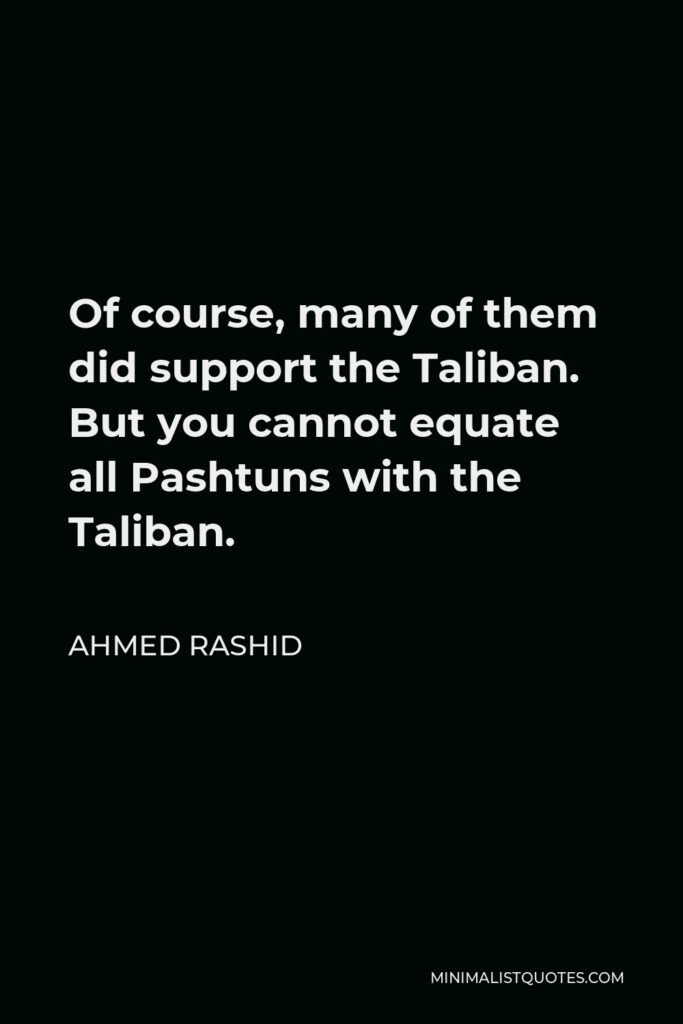

Of course, many of them did support the Taliban. But you cannot equate all Pashtuns with the Taliban.
AHMED RASHID -





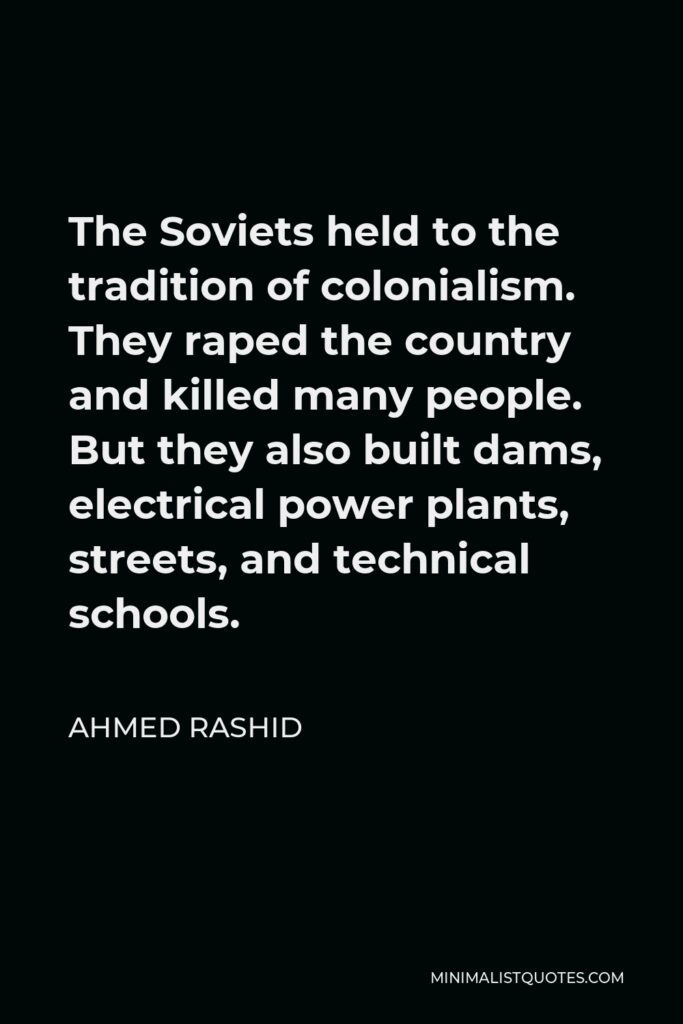

The Soviets held to the tradition of colonialism. They raped the country and killed many people. But they also built dams, electrical power plants, streets, and technical schools.
AHMED RASHID -





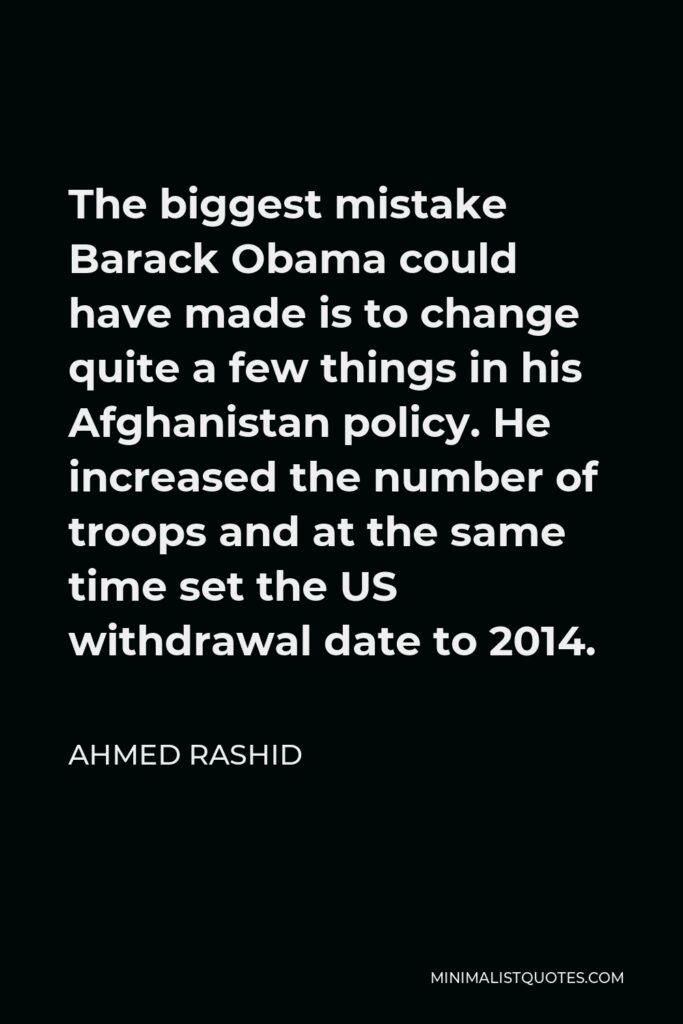

The biggest mistake Barack Obama could have made is to change quite a few things in his Afghanistan policy. He increased the number of troops and at the same time set the US withdrawal date to 2014.
AHMED RASHID -





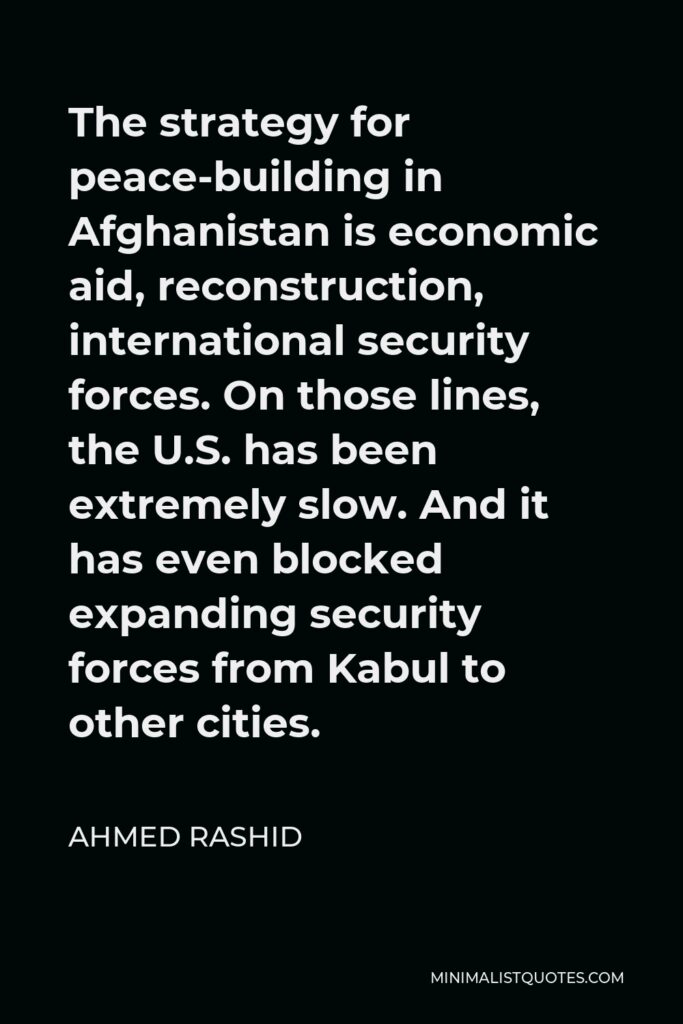

The strategy for peace-building in Afghanistan is economic aid, reconstruction, international security forces. On those lines, the U.S. has been extremely slow. And it has even blocked expanding security forces from Kabul to other cities.
AHMED RASHID
